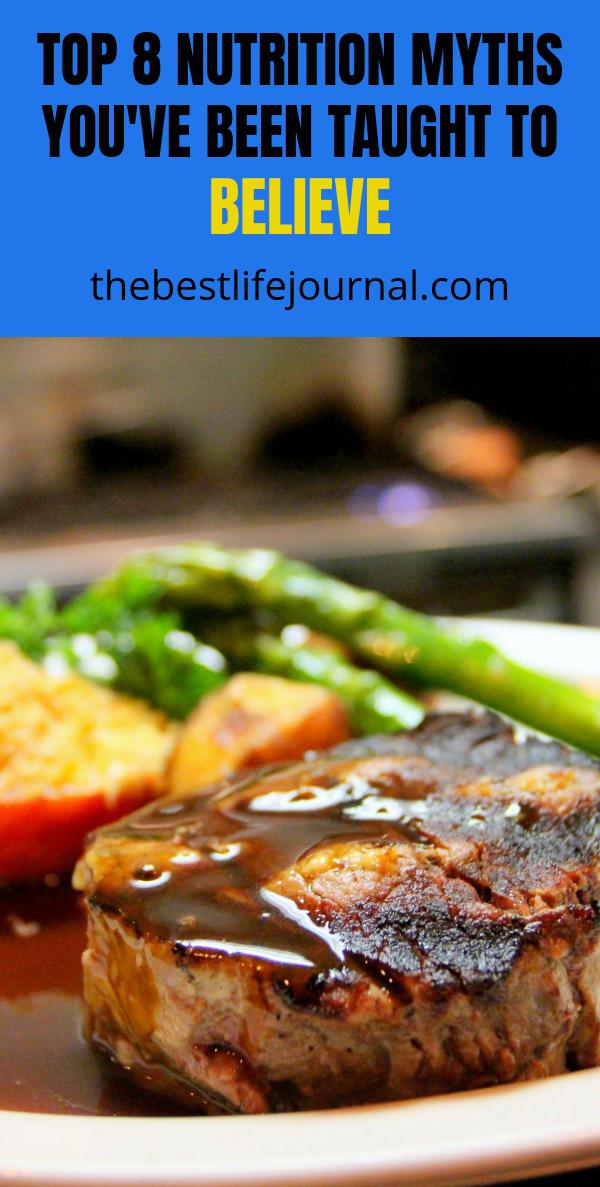There’s so much health information floating around these days. The internet, magazines, television, wherever you turn, there seems to be new must-have information regarding health issues. But are we always getting the truth of the matter? It’s best to take the time to research all these health claims because you can’t be too careful, especially when it comes to the care of your body. The following are 8 examples of nutrition myths presented to us as fact. According to the experts, we have been sadly misinformed.

1. To lose weight you must avoid carbohydrates
Many low-carb diets do not provide sufficient carbohydrates to your body for daily maintenance. It doesn’t matter if you eat a high or low-carb diet, you will lose weight if you eat fewer calories than are needed to maintain your current weight.
2. Avoid seafood to lower cholesterol
Saturated fats usually found in meat products and packaged foods, and trans-fatty acids, are the most important factors that raise blood cholesterol, not dietary cholesterol. Certain seafood, such as salmon, loaded with heart-healthy omega-3 fatty acids, have been found to not only lower cholesterol but high blood pressure as well.
3. Sugar Causes Diabetes
Actually, a high-calorie diet, being overweight, and a sedentary lifestyle are the main risk factors for Type 2 diabetes.
4. ALL Fats are bad
The key is to replace bad fats (saturated fats and trans fats) with good fats (monounsaturated fats and polyunsaturated fats) in our diet.
5. Brown Sugar is better than White Sugar
Unless you eat an enormous amount of brown sugar every day – the mineral content difference between brown sugar and white sugar is absolutely insignificant.
6. Brown Eggs are more nutritious than White Eggs
Eggshell color can vary but it has nothing to do with the quality, flavor, nutritional value, cooking characteristics, or shell thickness of an egg. The eggshell color only depends upon the breed of the hen.
7. Nuts are fattening
In moderation, nuts can be a part of a healthy diet. In fact, nuts are high in monounsaturated and polyunsaturated fats (good fats) as well as plant sterols which have all been shown to lower LDL cholesterol.

8. Skipping meals helps lose weight
Quite often, skipping a meal results in eating more calories than if we just ate more frequently throughout the day. A better approach is to eat smaller frequent healthy meals and snacks to keep our blood sugar balanced.
So as you can see, it pays to do the research in order to sort out nutritional facts from fiction in order to maintain the healthy body you deserve. Then, when these topics come up in conversation, you can also educate your family and friends.


Comments are closed, but trackbacks and pingbacks are open.